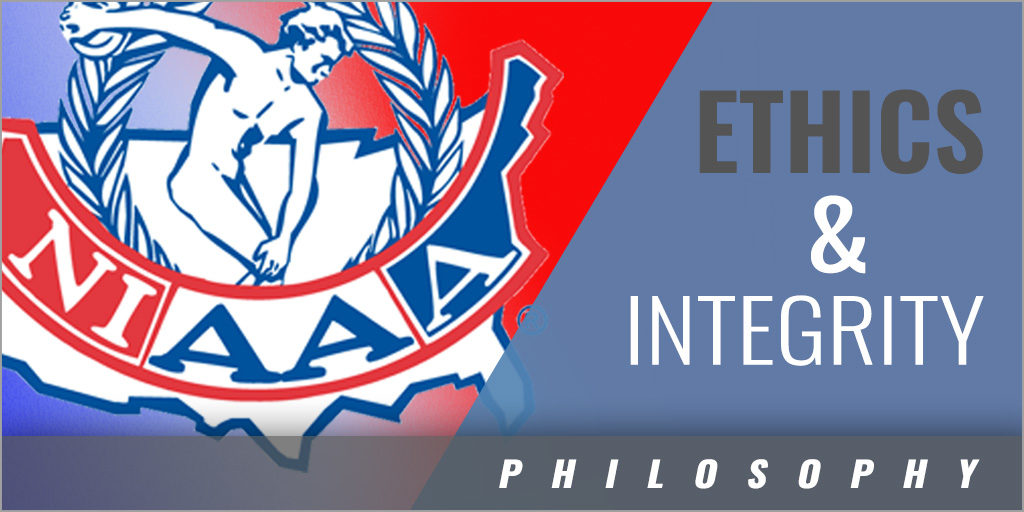|
By: Dr. David Hoch, CMAA As an athletic administrator, you have countless tasks and responsibilities associated with the position. Every day is unique and you are extremely busy. It takes good time management skills, effort, knowledge and experience to be effective. But even with all the skills, abilities and work that an individual contributes, the most crucial aspects are ethics and integrity. To earn the Certified Athletic Administrator or Certified Master Athletic Administrator certifications, one has to read and sign the NIAAA Code of Ethics. But signing the code is really only the first simple step or perhaps for some it may merely represent a mindless requirement. A signature on a document does not necessarily ensure that an individual will act in an ethical manner or with integrity. To embrace and follow the principles of the code, however, is an entirely separate and different matter. As with many aspects of life, actions often speak louder than words and this also would include written documents and statements. Since ethics and integrity are so important for an athletic administrator to perform the responsibilities of the position, it necessary for one to understand what is involved with each one. These qualities are not abstract terms or concepts, but rather they exist as standards or expectations of the highest level in society and not merely within the profession. In extremely simple terms, ethics means that you will do what is right as opposed to choosing what is wrong. While this is seemingly a very simple concept and one which should easily be understood, the actual implementation or usage sometimes may get a little cloudy or twisted for some. The distinction between right and wrong may not be clear or an easy choice. In addition, integrity deals with the basic principle of honesty. As with ethics, it is a relatively simple, straight-forward concept. It means that you should be a person of your word and your promise should be absolute. And of course, dependability and commitment also have a real connection to integrity and honesty. If both ethics and integrity are so simple and straight-forward, why do some have problems with them? The following examples illustrate some of the questionable situations or thoughts involved with these two qualities.
However, the issue of professional ethics and integrity also goes beyond your own direct actions or behavior. In addition, there is a school of thought that as a leader of an athletic department or program, you could be complicit if those working for you - coaches for example - do something unethical and you do not take preventative or corrective action. As the athletic administrator, you are, as with other duties and tasks, responsible for the entire program just as the principal and superintendent are respectively ultimately in charge of the school and district. While ensuring the highest ethical and integrity standards may be an awesome obligation, it is one which must be taken seriously and cannot be overlooked. The real question, however, is can someone with faulty ethics and questionable integrity change? One has to hope that individuals can change and improve or is one's experience and basic character ingrained and set for life? It is important to consider that in order to make a change, one also has to be receptive and willing to take concrete, positive, corrective steps. Therefore, all professionals - including colleagues and administrators - have a part to play with the ethics and integrity within the school's athletic program.
Ethics and Integrity have to be the bedrock or operational foundation for all athletic administrators. Without these two qualities, trust and respect from colleagues and constituents of your program simply will not exist. And without trust and respect, you have nothing, no basis to function in your position. It is that basic and important. |








